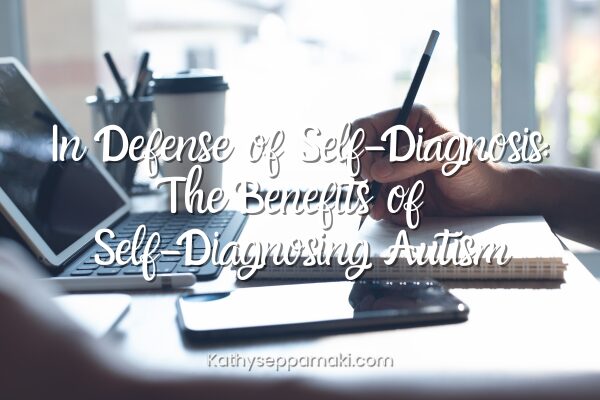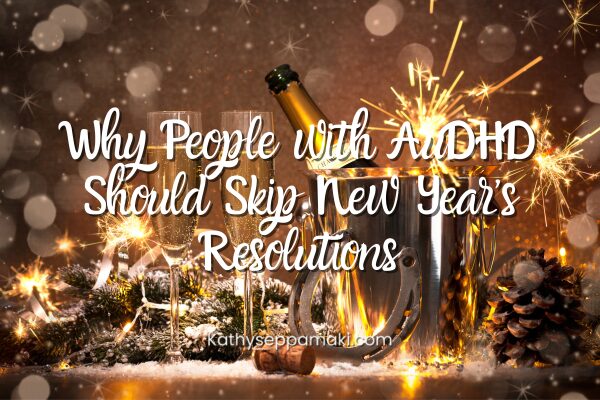In recent years, more people, especially women and adults, have begun to recognize themselves in the traits and experiences associated with autism. With increased awareness and better resources online, self-diagnosis has become a powerful tool in the neurodivergent community. However, it’s also sparked controversy, with some people arguing that only a formal diagnosis “counts.” But for many, self-diagnosing autism can be not only valid, but also life-changing.
I have been creating content online for a few months now because of my experience in discovering I have ADHD and autism, which came from self-diagnosis. And although I have not been formally assessed and diagnosed, I have been told by a therapist that my self-diagnosis was valid and, in their opinion, correct. And yet, I continue to have people online who continue to try to invalidate not just me, but many others, particularly women, who are high-masking and who have flown under the radar for decades.
Here’s why self-diagnosis deserves more respect and why it can be an incredibly beneficial step on the path to self-understanding and healing.
Here are some benefits of self-diagnosing
Access to understanding and language
For many people, discovering they might be autistic is like finally finding the missing puzzle piece. Self-diagnosis often comes after years, sometimes decades, of confusion, misdiagnosis, or simply feeling “different.” When someone reads about autism and sees their life reflected back to them, it can offer an immediate sense of clarity. It gives language to lifelong experiences that were previously misunderstood or dismissed.
This is exactly what happened to me. My first “aha” moment happened while watching a clip of a podcast I regularly tune into. That led me to do more and more research, which brought me to the autism connection. For the first time in my life, my experiences and my life actually made sense. And I cried.
That moment of recognition was validating, comforting, and freeing. And if it hadn’t been for that moment, I would still be struggling and blaming myself for being a crappy human.
Barriers to formal diagnosis are real
Getting a formal autism diagnosis is not always easy—or even possible. There are many barriers:
-
Financial constraints (assessments can be expensive and often aren’t covered by insurance). This has also been true for me. I don’t have $2-3K to pay for formal assessments.
-
Long waitlists (some people wait months or even years for an appointment)
-
Clinician bias (many professionals still have outdated ideas of what autism looks like, often based on white, cisgender boys)
-
Gender masking and social camouflaging (many women, nonbinary, and trans individuals have adapted so well that they don’t “look autistic” to others, including clinicians)
- Uncertain political climate (when a politician in power claims to want to send those with autism and ADHD to “camps,” it can be a bit frightening to want to have a diagnosis on your medical record). I’ve actually heard this fear from quite a few self-diagnosed individuals.
Self-diagnosis is sometimes the only option. And it’s often more accurate than a dismissive evaluation from a poorly informed professional.
Empowerment through self-awareness
Self-diagnosing can be an act of empowerment. It allows individuals to take ownership of their neurodivergent identity and begin adjusting their lives to better support their needs. This might look like:
-
Setting better boundaries
-
Seeking sensory accommodations
-
Reframing past experiences through a new lens
-
Letting go of shame and embracing authenticity
- Understanding co-morbidities that often go along with autism
People who self-diagnose often start treating themselves with more compassion and begin creating a life that actually works for them.
Community and belonging
Self-diagnosis opens the door to a community. Once someone identifies as autistic, they can connect with others who share similar traits and experiences. Finding others who “get it” can reduce loneliness, foster mutual support, and help people feel less broken or alone.
Neurodivergent spaces often welcome self-diagnosed individuals with open arms, recognizing the validity of lived experience.
Validation of lived experience
You don’t need a piece of paper to know yourself.
Autism is a neurological difference. It’s not something that magically appears when a professional says so. Many people who self-diagnose go through deep reflection, research, and comparison before claiming the label. Their understanding of themselves is often more nuanced than someone who walks into a 90-minute evaluation with a stranger.
Trusting lived experience is not just valid, it’s essential.
Final thoughts
Self-diagnosing isn’t about labeling yourself on a whim. Most people who self-diagnose have taken multiple self-assessments (many of which are used by professionals). And most, like me, have done hundreds of hours of research, learning more about autism. I didn’t want to be autistic. In fact, I resisted it for a long time. Until the proof was overwhelming, and I couldn’t deny it any longer.
Self-diagnosis is about exploring your identity, understanding your needs, and honoring your lived experience. While a formal diagnosis may be helpful for accessing services or legal accommodations, it’s not the only path to understanding yourself.
For many people, especially in marginalized communities, self-diagnosis is the only viable path. And it deserves to be respected.
In the end, whether your diagnosis comes from a professional or from your own inner knowing, what matters most is what you do with that knowledge—and how you use it to build a kinder, more supportive life.
You are the expert on you. Don’t let anyone tell you otherwise.




